
After praising the work of Jean-Luc Berger, who carried out this role with the greatest of skill in recent years, the CST was unanimous about a career path that meets the requirements of an essential position for the review of scientific and technical works submitted to the OIV Awards.
An engineer in oenology and viticulture (Changins School of Viticulture and Oenology in Switzerland), Richard Pfister was awarded the Swiss Union of Oenologists’ prize for his thesis on sensory analysis entitled ‘La méthodologie de l’olfaction en parfumerie : Possibilités d’application à l’analyse sensorielle des vins’ (The olfaction methodology in perfumery: possible applications for the sensory analysis of wine).
After working as an oenologist in Spain and several years dedicated to the creation of perfumes, he became an international consulting oenologist and sensory consultant. He has also taught at a number of prestigious wine schools (Changins School of Viticulture and Oenology in Switzerland, the Institute of Vine and Wine Science (ISVV) at the University of Bordeaux in France, and the AgroSup Dijon School of Agronomic Engineering, also in France).

In addition, Richard Pfister is an international expert wine judge, an OIV and VINOFED observer, a book reviewer for works submitted to the OIV Awards, an international speaker and trainer, the author of oenological articles for a number of French, Swiss and Italian journals, and, since 2006 he has been editor of Objectif (a Swiss magazine dedicated to viticulture, oenology and arboriculture).
He has been a Council member of the Fondation Internationale des Sciences et Culture de la Vigne et du Vin in Aigle, Switzerland, since 2013.
His work, ‘Les parfums du vin’ (The perfumes of wine), a book on sensory analysis, received the OIV Award in 2015.
We extend a warm welcome to Richard Pfister among the members of the OIV Award Jury!
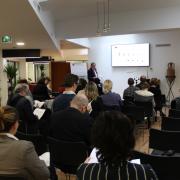
During the press conference held at the headquarters of the International Organisation of Vine and Wine, the Director General of the OIV, Pau Roca, presented the first estimations for world wine production in 2019.
2019 Wine production first data estimations
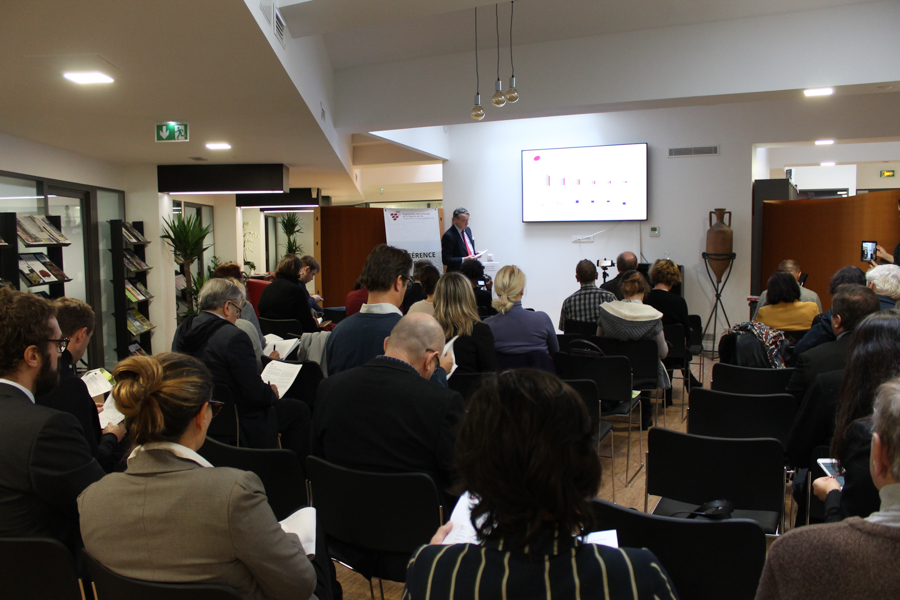

OIV Director General, Pau Roca, opened the conference "Wine, Environment & Society" on Tuesday 5th November2019 with an intervention focusing on "Global Environment Issues and Impact on Society".

Suzanne Mustacich, contributing editor for Wine Spectator, was the master of ceremonies in this conference, in which the OIV expert and the Organisation's ENVIRO group (Sustainable development and climate change) president, Professor Hans Schultz, (also president of Hochschule Geisenheim University), has participated by speaking about the "Impact of warming climate on the wine production".
The speaker's panel was completed by the Research Director of Bordeaux ISVV, INRA: Eric Giraud-Héraud, who spoke on "the impact of consumers requesting wineries to produce 'clean and green' wines".

A discussion panel followed their interventions with the participation of Jeremy Cukierman MW, Director of KEDGE Wine & Spirit Academy; Caroline Feely, Director of Château Feely; Caroline Frey, owner & Oenologist in Château La Lagune; Kim Forsberg, Sustainability Manager Vingruppen (Sweden), in the picture below.
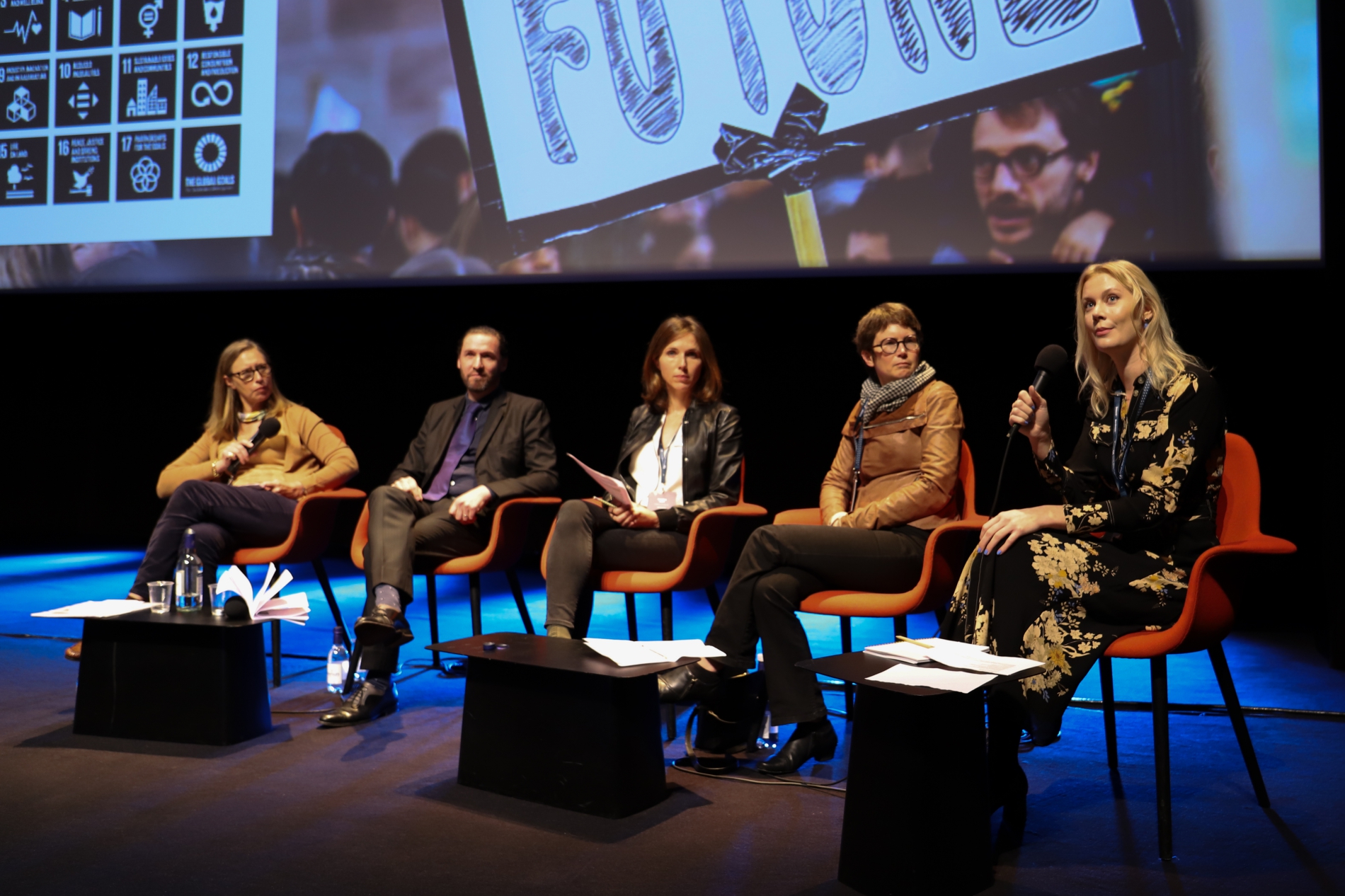
New biological and organic modes of cultivation, such as more eco-friendly packaging and transports logistics, where part of the main points discussed.
About the great Wine Capitals Global Network
The Great Wine Capitals is a network of ten major global cities in both the northern and southern hemispheres, which share a key economic and cultural asset: their internationally renowned wine regions.
This network encompasses the so-called ‘Old’ and ‘New’ worlds of wine, and it aims to encourage travel, education and business exchanges between the prestigious wine regions of Adelaide, Bilbao, Bordeaux, Lausanne, Mainz, Mendoza, Porto, San Francisco, Valparaiso and Verona.
Being founded in 1999, the Network has developed and introduced several projects, initiatives and programs with the objective of achieving excellence in tourism, business services and education within the global alliance of its renowned wine regions.
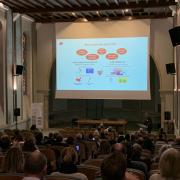
On 15 November 2019, over 200 participants attended the 7th Wine Track® event, held in Reims (France).
Under the high patronage of the OIV, this symposium co-organised by the Society of Chemical Experts of France (SECF) and the Champagne-Ardennes section of the Union of Oenologists of France was a unique opportunity for scientists to discuss the tools and techniques that help ensure the traceability and guarantee the authenticity of vinicultural products, especially in relation to counterfeiting and fraud.
OIV Scientific Coordinator Jean-Claude Ruf took the opportunity to highlight the OIV’s long-standing commitment in these areas, particularly through the creation of international standards relating to:
- the definition of products,
- oenological practices, in particular as regards consumer safety and maintaining the authentic character and organoleptic qualities of wines,
- labelling rules,
- the implementation of traceability standards, and
- the implementation of analytical standards to monitor this traceability and origin.
Traceability and authentication systems require a high level of trust among operators, especially in blockchain systems, as well as a certain level of interoperability between systems.
As regards authenticity, while methods to measure light isotopes are still widely used, the analysis of non-traditional isotopes, of trace elements, can be used to show that each wine has its own natural isotopic signature. Similarly, other isotopes such as those of nitrogen can serve as a geographic marker.
Finally, non-aggressive methods of laser ablation can detect counterfeiting by analysing the container, which also has a specific chemical signature.
It would therefore seem that the different methods, such as the analysis of stable isotopes or of certain light isotopes, as well as the determination of trace elements or proton analysis, constitute complementary tools that open up new horizons and perspectives in the field of traceability and authentication.
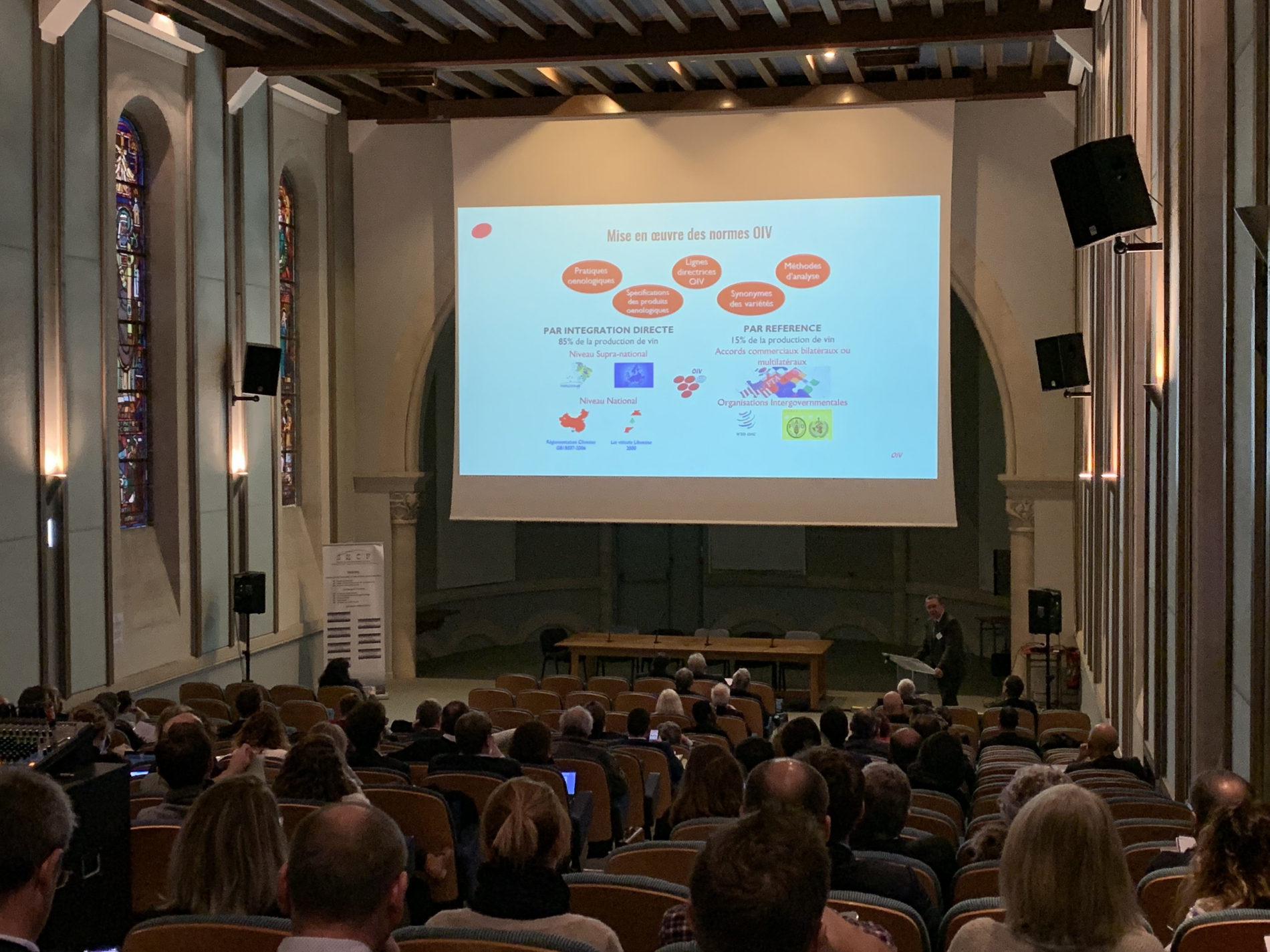
Jean-Claude Ruf OIV. Wine Track® 2019
© Photo : R. Lartigue - Toppan Europe

On this occasion, Pau Roca explained how the OIV, since its creation, has been fundamental in the regulation of the sector: “the harmonisation of definitions, oenological practices, methods of analysis, labelling, etc. has levelled the playing field for more or less everyone. Even countries that are not members of the OIV follow its standards, or members refer to these in the context of certain trade agreements”.
Even though, in his opinion, this sector is far more regulated than others, “this does not impede the development of world trade, since wine is a highly internationalised product. Nearly one in every two bottles crosses a border”.
In this context, Pau Roca believes that: “the degree of standardisation is the product of historical maturity and evolution”. The OIV, “contrary to other bodies whose standards are mainly limited to food safety, deals with questions of integrity, identity, origin, etc., which are very important in the wine sector. In reality, we have been precursors to many quality standards in the wine sector”, he declared.

In this sense, the Director General considers that these regulatory conditions give the sector a distinct economic structure, whose most striking characteristic or symptom is the fragmentation and vast diversity of actors.
Although this is a hindrance to the existence of global brands, “because brands must compete for visibility with the origin”, he highlighted, “in a system of small dimensions, big investments and low immediate returns, this is not always a disadvantage”. The Director General of the OIV justified this in that “this economic structure will be a model of resilience, which, by innovating and adapting, is resisting against the inexorable climate crisis resulting from global warming”.
To address climate change, Pau Roca believes that “economists should study ecology more, to understand how some of the laws or basic principles work in a terrestrial or marine ecosystem.”
Sustainability as a new value for growth
The OIV Director General asserts that “an economy that pays attention to this reality is definitely on the right track. Growth will be an indicator of transition, yet the goal should be to preserve the biosphere; the objective of humanity is to preserve this finite asset that is the earth, and that, as such, is the only capital of reference”.
In fact, in his speech he placed emphasis on the new OIV Strategic Plan for the next five years (2020-2024).
This Strategic Plan has six major axes from which objectives to be pursued are derived, “and we have carried out an exercise to align these with the United Nations Sustainable Development Goals [SDG]. If we succeed in fulfilling our Strategic Plan, we will be able to say that, in the wine sector, we are more or less on target, for 13 out of the 17 SDG”, Pau Roca reported.
Three axes are on sustainability and adaptation to climate change, without forgetting mitigation efforts, because, as Pau Roca sees it, “we have to provide an answer to the millions of producers that don't wish to relocate their production – which we as consumers don’t want, either. Three concepts form the basis of the terroir: the climate factor, which as we can see is uncontrollably changeable at the moment; the soil, which is also affected by the climate; and the plant material and great genetic diversity provided by the Vitis genus and the work of people and tradition”.
Note: The new OIV Strategic Plan will be available online in the next few weeks.
